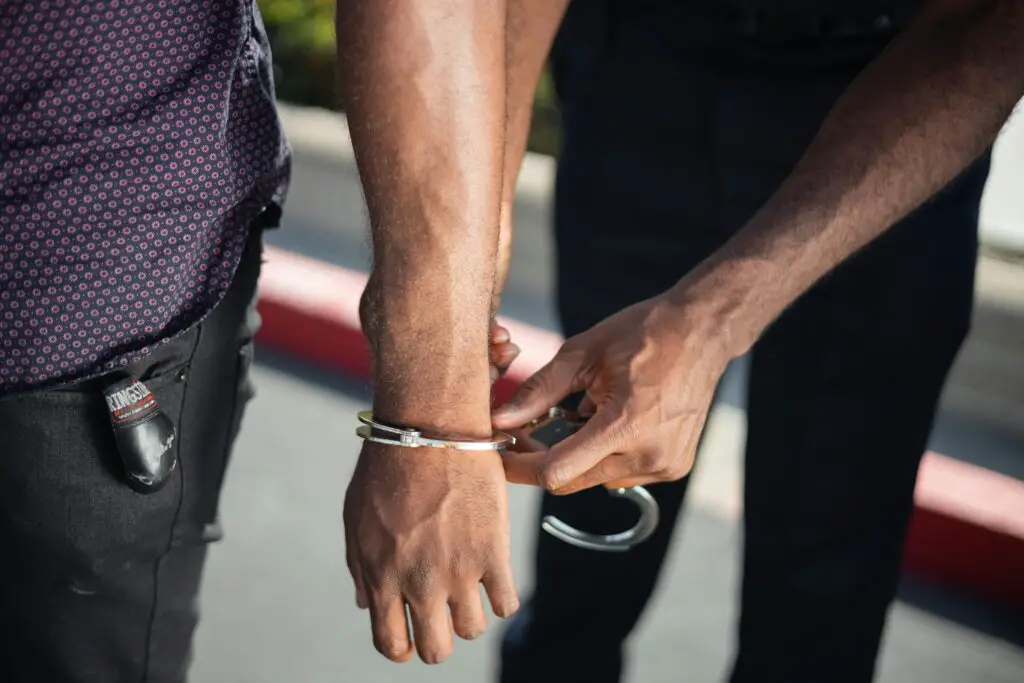As kids, we all hear that the police are honest figures of authority meant to uphold the law. However, this video flips that narrative on its head. Watch as police lie on camera to gain entry into a home. Despite their deceit, they use search and seizure tactics to their advantage.
The film is in the form of security footage, likely taken from an apartment complex. In the frame stands multiple police officers surrounding a door. One cop calls out to the person behind the door. She says, “It’s doordash. I have a delivery for [apartment] 103”. In response, the person opens their door, and the cops continue their rouse. After being asked if anyone else is in the apartment, the person invites the police in to check. After this, the video ends; however, we can assume that the act put on by the cops worked.
Can Police Lie To You?

Depending on the situation, it can be legal for cops to lie to you if they do so for a greater purpose without malice. There are many instances where a cop may lie to someone. Some notable examples include:
- During an undercover investigation
- While attempting to get someone to open their door
- While questioning suspects in custody
- During a negotiation
Even though the law allows police to lie, the general public does not widely appreciate it. Additionally, legally lying can quickly infringe on important rights if done incorrectly. There are numerous infamous cases of people suing the police for lying that led to improper conduct.
The Rules of Search and Seizure
Search and seizure is a term that describes law enforcement’s examination and confiscation of someone’s property. A search involves officers going through someone’s home, property, car, or business. Seizure describes the lawful confiscation of property from those locations if related to an ongoing crime investigation. The Fourth and Fourteenth Amendments limit search and seizure to protect the public when they are reasonable, warranted, and supported by evidence.
To search someone’s property, police usually need either consent or a search warrant. Obtaining a search warrant can be an extensive process, requiring a judge’s approval and a formal application. This process can delay investigations and impede the police’s ability to act quickly.
As a result, police may use tactics, such as deceit, to help in their investigation. For instance, police may lie about who they are to get you to open the door.
When police have a search warrant, they typically knock and announce their presence. Of course, there are expectations to that rule. Some common exceptions include if knocking is not feasible or dangerous. In some famous court rulings, police have been allowed to skip the knock-and-announce rule or even use deceit to get someone to open their home for a search.
Can Police Lie To Get In Your Home?

The police cannot simply lie about their identity to gain access to your home. They must have consent or a search warrant to enter or search your house legally. However, the police can use deceit to initiate a conversation. The video demonstrates that the police managed to get their suspect to open the door by lying to them.
If someone then asks the police to enter their home after lying, that is usually legal. When opening your door, you should have a decent idea that it is the police; thus, inviting them in would be of your own will.
Police frequently employ strategies like these to initiate investigations without a warrant. For example, requesting to investigate something unrelated or posing as maintenance workers are common tactics. However, police cannot use their rank or authority to gain access. For instance, it would be illegal for them to lie about possessing a valid search warrant.
Verdict on the Search and Seizure Viral Video
Attorney Ugo Lord has some pretty interesting things to add concerning the video clip. Lord explains that the Supreme Court has looked at similar cases of police officers lying to suspects or using deceitful practices to gain home entry. In these cases, the court has deemed it legal, assuming that the police weren’t infringing on any basic rights.
In the viral video, cops were able to gain legal entry because the person invited them in. Despite their initial deceitful practices, the person gave willing consent after seeing that they were, in fact, police officers. Thus, the police behavior shown in the video is valid and legal in the eyes of our justice system.

